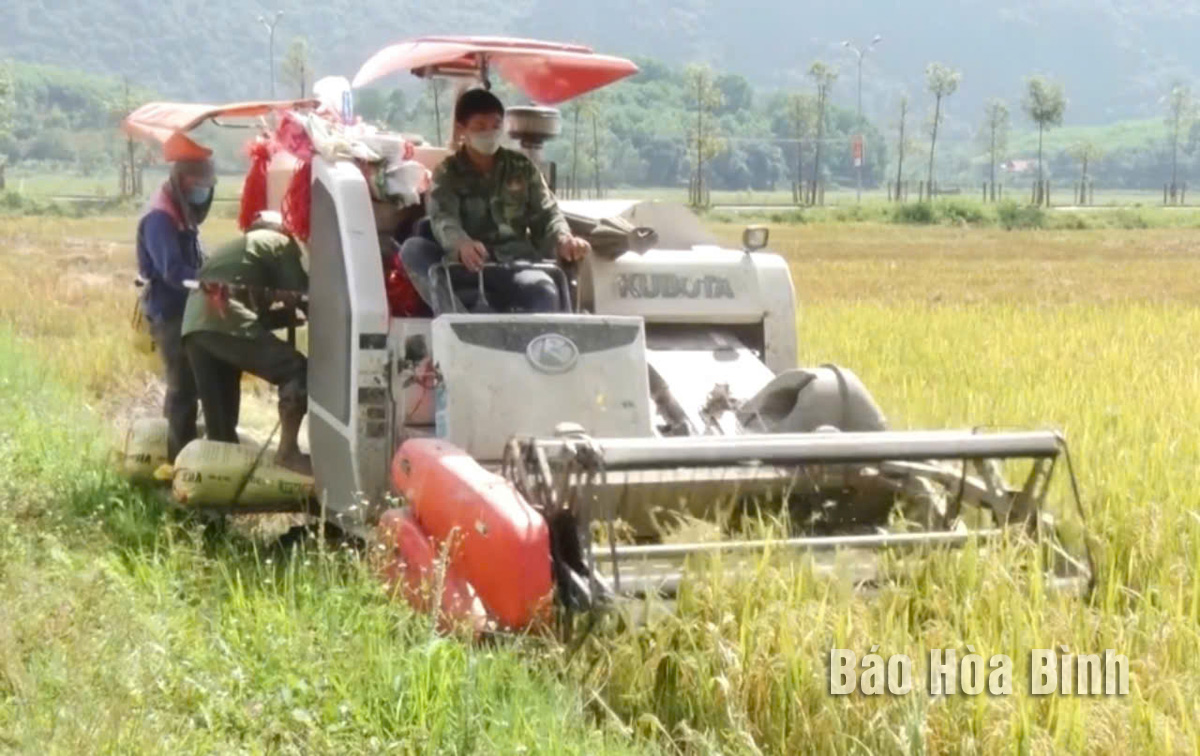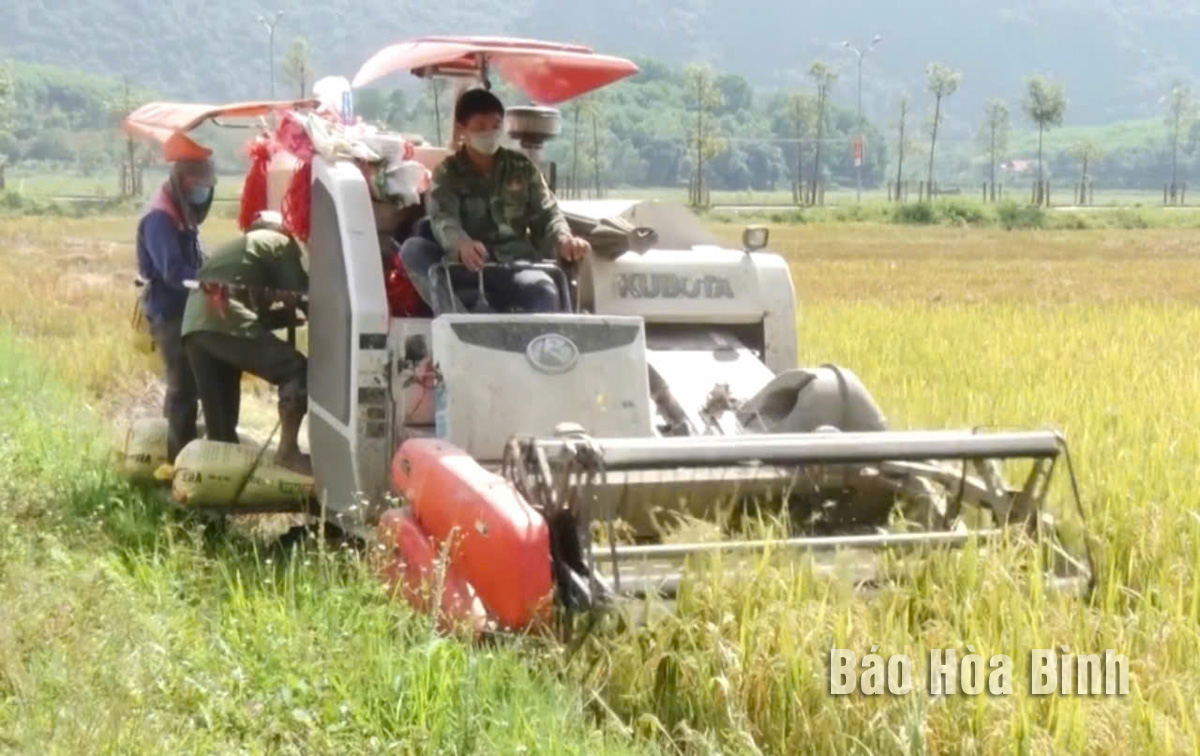
Lac Thuy district made a breakthrough in the land redistribution work during 2020-2023 to develop large-scale fields, creating favourable conditions for businesses, cooperatives, and other economic sectors to invest in the production of agricultural commodities, and helping improve productivity and income for farmers.
Machines have been used to harvest crops in An Binh commune, Lac Thuy district.
An Binh commune has been a bright spot in the land redistribution scheme, with 381 hectares of land redistributed during 2019-2023, or 42.2% of the commune’s total areas designated for agricultural production, surpassing its set target. The commune has also been paying due attention to building rural road and irrigational works.
Chairman of the communal People’s Committee Quach Cong Muoi said the scheme has helped raise public awareness of the new-style rural building as it has encouraged them to donate land and money to develop technical infrastructure for production.
By the end of 2023, the district had redistributed 620 hectares of land, on which local farmers cultivate high-yield and quality plants under good agricultural practices (GAP), and with advanced techniques. The farmers said thanks to the reorganisation of production, their earning from a hectare of crop has risen 29%.
Vice Chairwoman of the district People’s Committee Hoang Thi Thu Hang said the district is striving to redistribute 1,020 hectares of land by 2025, and will step up communications work to engage more locals in the scheme.
Lac Thuy will continue developing agricultural production in value chain, and supporting production in accordance with specific standards, creating motives to accelerate the land distribution work, she added.
The Standing Board of the Hoa Binh provincial Party Committee has agreed in principle on a proposal by the Standing Board of the Party Committee of Hoa Binh city to gather feedback on the city’s 1:2000 zoning plan, which forms part of its broader urban development strategy.
Hoa Binh province has made notable progress in public administration reform and digital government development, with the satisfaction index among citizens and businesses reaching over 84%, according to recent government evaluations.
Thanks to great efforts by local authorities in recent times, the governance and public administration performance of Mai Chau district has been significantly improved.
In the afternoon of June 6, the Party Committee, the People's Council, the People's Committee and the Fatherland Front of Lac Son district solemnly held a meeting to celebrate the 139th anniversary of the district's founding (1886–2025) and the 79th anniversary of the establishment of the district's Party Committee (1946–2025). There was the attendance of Mr. Bui Van Thang, the Vice Chairman of the Provincial People's Council; Mr. Quach Tat Liem, the Vice Chairman of the Provincial People's Committee; Ms. Dang Bich Ngoc, the Deputy Head of the National Assembly Delegation of the province; as well as the former leaders of the province and district through various periods, who are the natives of the district.
Implementing the Politburo’s Resolution No. 57-NQ/TW on breakthroughs in science – technology, innovation, and digital transformation is a golden opportunity for the northern mountainous province of Hoa Binh to renew growth model, improve competitive edge and shorten digital gap.
Resolution 57-NQ/TW, issued by the Politburo on December 22, 2024, identifies sci-tech, innovation, and digital transformation as strategic breakthroughs to build a developed and prosperous nation. In Hoa Binh province, this spirit is not just a slogan, it’s being put into action through concrete initiatives that form a "new development triangle”: digital citizenship, digital economy, and digital administration.



